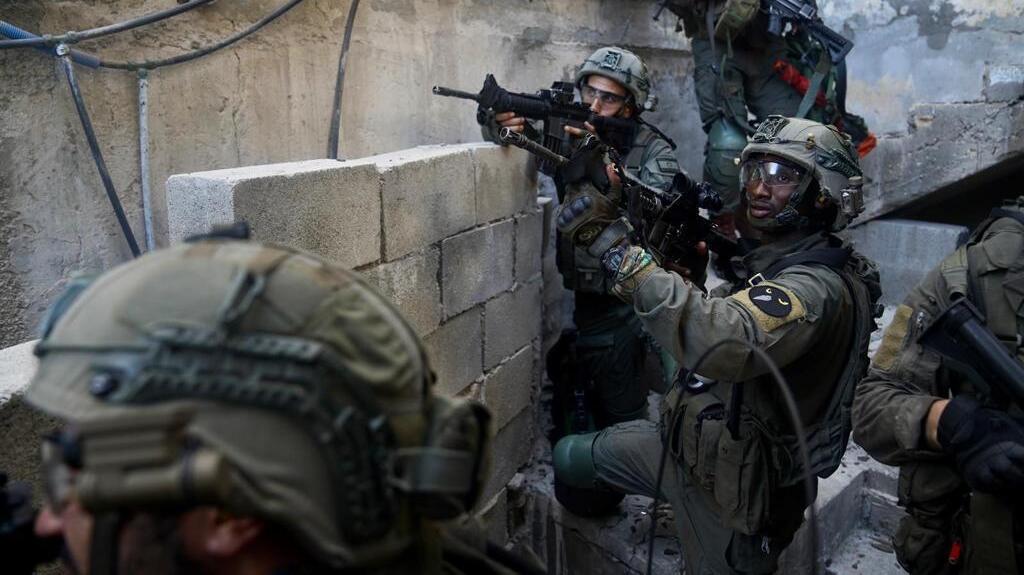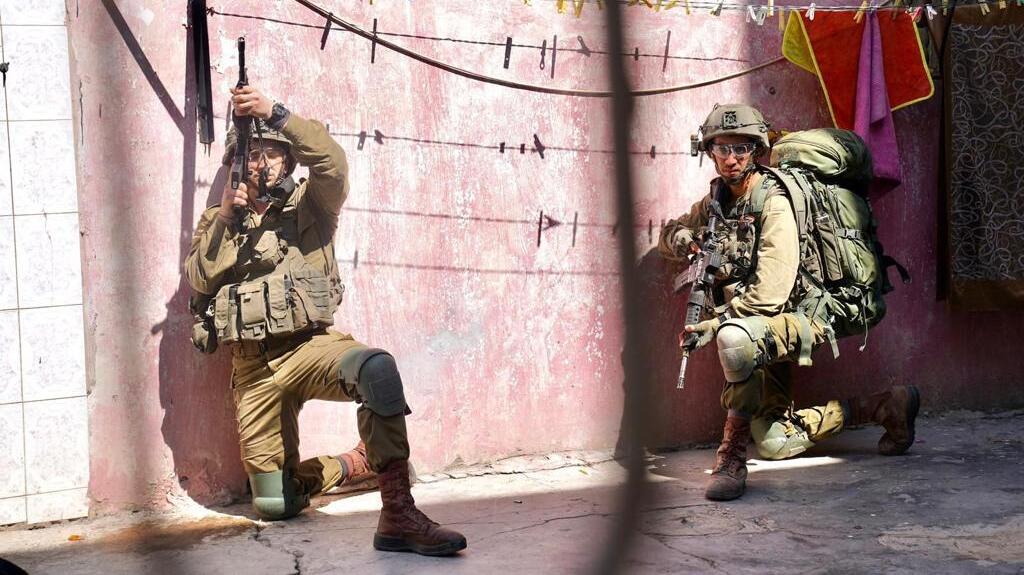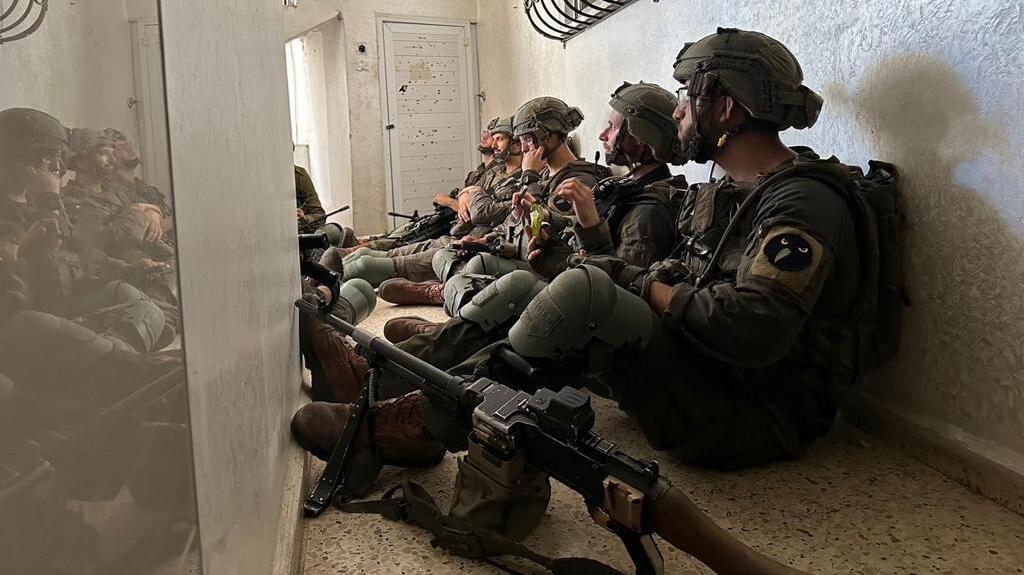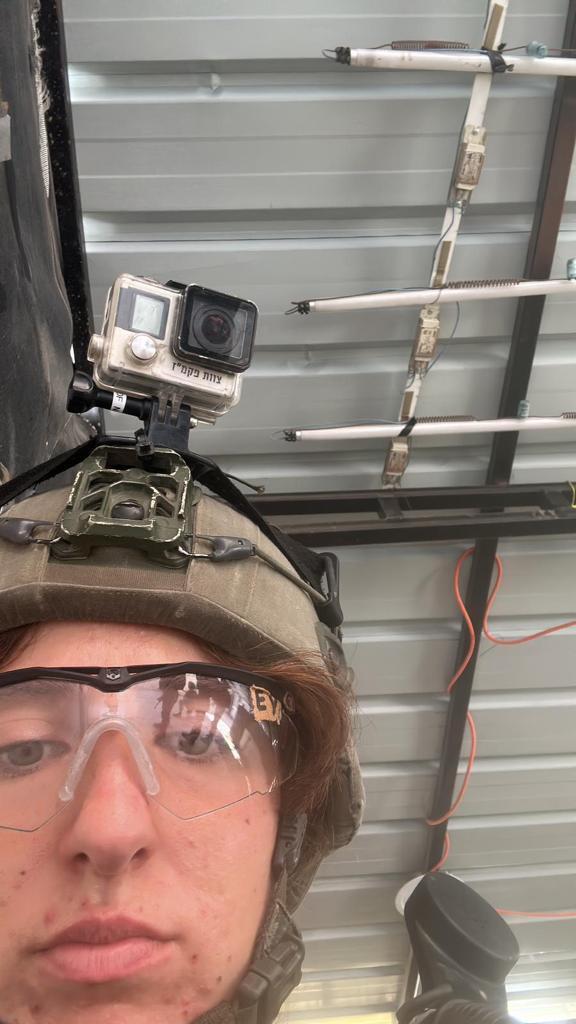Getting your Trinity Audio player ready...
For 40 consecutive hours, Sgt. E., serving as an operational documentarian in the Israel Defense Forces, accompanied the soldiers of the Paratroopers Reconnaissance Battalion operating in the Jenin refugee camp as part of the counter-terrorism operation dubbed Operation Home and Garden.
More stories:
E. racked up the longest operational stay by a documenting female soldier in hostile territory since the integration of women into the combat documentation unit.
5 View gallery


E. was the only female IDF soldier in Jenin during Operation Home and Garden
(Photo: IDF)
Apart from her role as a medic, the 22-year-old was the only female soldier operating in the camp throughout the operation. She entered Jenin with the soldiers at 3 a.m., two hours after the aerial assault began. Within minutes, gunfire erupted toward the force she was with, providing cover for the commando soldiers as they conducted operations in the heart of the camp.
It was the final week of E's service. The plane tickets for her discharge vacation in Greece had been booked a long time ago. Nevertheless, she didn't hesitate to join the dangerous mission.
"I went into it knowing that there was a good chance I would miss my flight, and the entire vacation would be ruined," she told Ynet and Yedioth Ahronoth. "But in the end, I managed to make it home, pack my suitcase, and rush to the plane to Rhodes."
Even before leaving Jenin, a photo she took was published on the front page of Yedioth Ahronoth showing the paratrooper reconnaissance unit in action on one of the streets of the refugee camp.
"My mom sent it to me with pride," she shared, "and I immediately showed it to the soldiers, who were pleasantly surprised and excited. They couldn't believe that I managed to send the photo in the midst of the operation and that it was being published so prominently while I was still with the force in the field."
E. is part of the documentation-operational team of the Central Command. She underwent an extensive eight-month training like all infantry soldiers, as well as an advanced course in documenting operational activities in enemy territory. And in the past, she had already documented operations in the Gaza Strip. "Jenin camp quickly became an abandoned place, we hardly saw a living soul. I joined the search and rescue operations of the elite Yahalom engineering unit," she said.
"I documented intense operations of breaching into buildings and targets where we found hundreds of different combat tools: weapons parts, knives, kneepads, vests and a lot of stolen IDF uniforms – quantities that would be enough for an army. Most of the terrorists fled from there, leaving everything behind. I thought to myself that there are soldiers who lack this equipment, and here it all was in front of me in large quantities," according to E.
However, not everything went smoothly. After being promised that she would join the operation, E. suddenly received a message that there was a logistical problem and no place for her. She insisted, and her company commander spoke with a senior officer in the Paratroopers Brigade, who approved her participation. In the days leading up to the operation, she trained with the soldiers from the reconnaissance unit in various combat scenarios and encountered skepticism from some of the commanding officers.
"The commander of the reconnaissance unit believed in me at every stage, but there were those who hesitated to take responsibility for me during the operation," she explained. "They asked me what I was doing there and wondered how I could tolerate being with boys for such a long time in one place. But pretty quickly we connected. I explained to them the importance of operational documentation in strengthening the legitimacy of their actions, and at a certain point, they understood for themselves how crucial it was. They documented the fighting with their own equipment and offered me the photos. I told the soldiers that if we come under fire, I would first respond as a combatant and use my weapon, and only then use the camera."
They were together for almost two days inside a Palestinian house: 16 soldiers on the ground floor, along with one female soldier, and another 16 soldiers on the upper floor. They gathered the Palestinian family members in one of the rooms until the conflict subsided. She slept alongside the soldiers on the floor, in a half-sitting, half-lying position, without a mattress, and they all shared the facilities of the residential structure.
"If I had to protect the family members while they used the restroom, I did it," she recounted. "Since I didn't know how long the operation would last, I took a can of corned beef in my vest, 10 cucumbers, and some bread. That was my main food and the soldiers' as well."
Now she is on vacation, exchanging the scorching sun of the northern West Bank for the warm beaches. She describes her participation in the operation as a "unique experience," mainly due to the contrast between the dangers that were described to her during the preparation stages and the fact that most of the terrorists escaped from Jenin, as the refugee camp turned into a ghost town.





